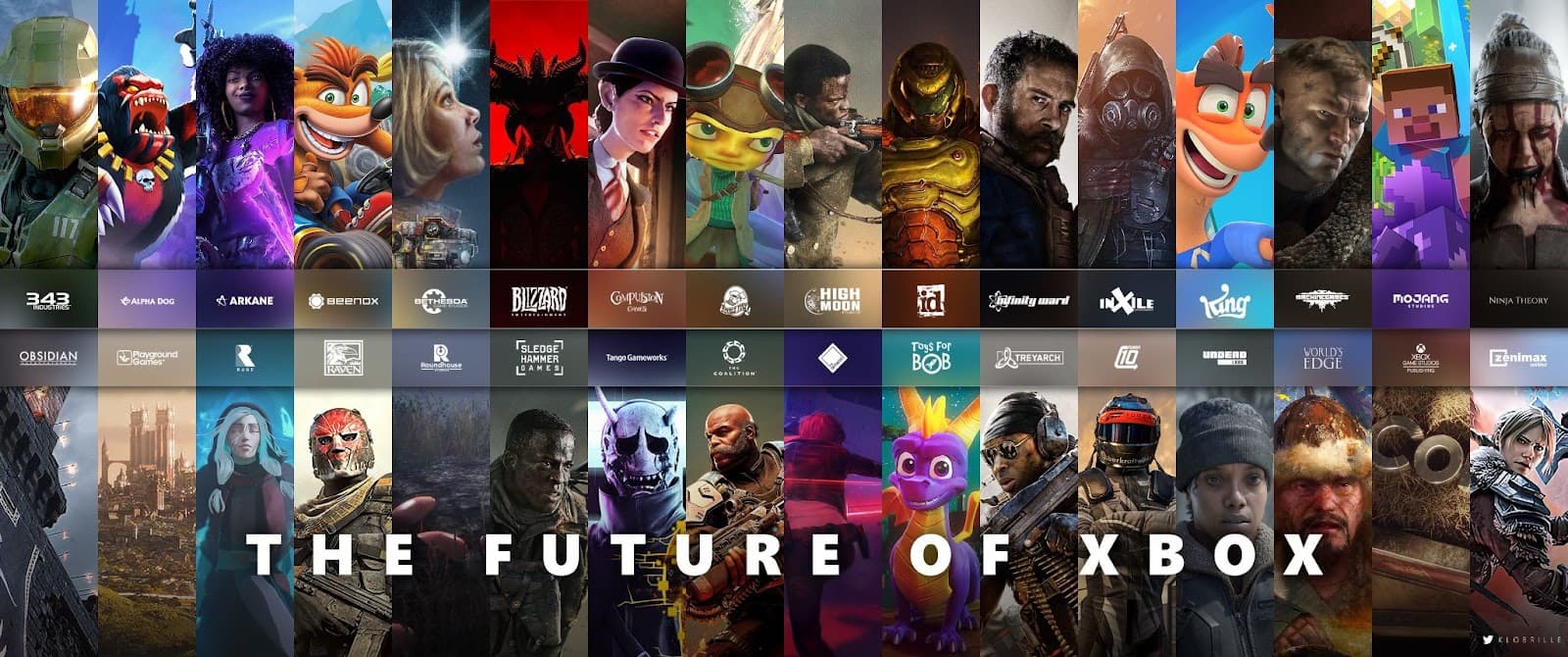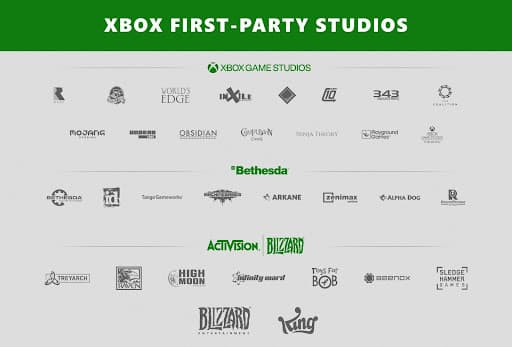Accessibility Tools
PMG Digital Made for Humans
Microsoft-Activision Deal Draws the Metaverse Closer to Reality
5 MINUTE READ | January 21, 2022

Microsoft-Activision Deal Draws the Metaverse Closer to Reality
Abby Long
Abby manages PMG's editorial & thought leadership program. As a writer, editor, and marketing communications strategist with nearly a decade of experience, Abby's work in showcasing PMG’s unique expertise through POVs, research reports, and thought leadership regularly informs business strategy and media investments for some of the most iconic brands in the world. Named among the AAF Dallas 32 Under 32, her expertise in advertising, media strategy, and consumer trends has been featured in Ad Age, Business Insider, and Digiday.
History was made this week as Microsoft announced plans to acquire gaming giant Activision-Blizzard in a record deal valued at an estimated $75 billion. Analysts are calling the move “wickedly strategic,” although it’s likely to be subject to intense scrutiny from federal antitrust regulators before the ink can dry. Even still, the prospect of the deal comes at a critical moment for the technology sector—one that sets a precedent for the future of Big Tech acquisitions while offering marketers a glimpse into the immersive web3 future.
If approved, the deal will transform Microsoft into one of the largest game publishers and content production companies in the world while equipping the software giant with a host of first-party game studios and intellectual property that includes major gaming franchises like Overwatch, World of Warcraft, Candy Crush Saga, and Call of Duty.
“Gaming is the most dynamic and exciting category in entertainment across all platforms today and will play a key role in the development of metaverse platforms,” said Satya Nadella, chairman and CEO of Microsoft. “We’re investing deeply in world-class content, community, and the cloud to usher in a new era of gaming that puts players and creators first and makes gaming safe, inclusive, and accessible to all.”

The acquisition upends the gaming market and comes after similar moves throughout the last several years, including Microsoft’s acquisition of Minecraft developer Mojang Studios in 2014 and the $7.5 billion purchase of Bethesda Softworks in 2021. Combined, these acquisitions solidify Microsoft as a major player in the gaming industry and the third-largest gaming company in the world by revenue after Tencent and Sony. Microsoft’s existing gaming business, which includes the Xbox Game Pass, Xbox Cloud Gaming, and a batch of first-party game studios under the Microsoft Gaming Studios umbrella, brought in $15 billion last year for the company.
Microsoft plans to launch Activision Blizzard games into Microsoft’s Game Pass portfolio, which claims 25 million monthly subscribers. With Activision Blizzard’s nearly 400 million monthly active players in 190 countries and three billion-dollar franchises, the acquisition will make Game Pass one of the most diverse lineups of gaming content in the industry. Upon the deal’s close (estimated for 2023), Microsoft will have 30 internal game development studios, along with additional publishing and esports production capabilities, per Microsoft’s announcement.
Across the gaming industry, revenue is forecast to increase from $180 billion in 2021 to $220 billion by 2024 as consumer adoption and sales skyrocket. Popularity in gaming continues to grow and consolidation in the market has followed. 2021 recorded $117 billion in gaming acquisitions, and already in 2022, Take-Two, the maker of Grand Theft Auto, announced the acquisition of Farmville creator Zynga for $12.7 billion just days before the Microsoft-Activision deal was made public. As consolidation occurs across the larger tech industry, and the potential for a laundry list of intellectual property to be under Microsoft’s purview, the deal may draw greater attention from regulators who have spent the last few years ramping up challenges against Big Tech.
Earlier this week, the Federal Trade Commission (FTC) and the Justice Department’s Antitrust Division launched a joint public inquiry aimed at strengthening enforcement against illegal mergers. As industries across the economy become more concentrated, the FTC notes that merger filings doubled from 2020 to 2021. To address these concerns, the agencies are expected to modernize federal merger guidelines in the coming months. Elsewhere on Capitol Hill, a Senate panel approved antitrust legislation forbidding tech platforms from favoring their own products and services over competitors, in the latest move to rein in the market power of the biggest tech platforms.
Analysts theorize that regulators may look to break up the Microsoft-Activision deal, or “at the very least, create stipulations that limit Microsoft’s ability to lock certain properties behind its own ecosystem” of games and hardware like the Xbox or Microsoft computers.
The surging popularity of games, livestreaming, and esports, and, most recently, VR headsets, positions gaming as one of the best avenues for attracting skeptics to more immersive experiences while ushering in the convergence of commerce, entertainment, and social messaging in digital environments. While tech rivals like Meta reorient their businesses in the race to build the first metaverse platform, Microsoft, Tencent, and other gaming companies may have both the intellectual property and tech talent in-house to make these virtual economies a reality worth stepping into.
Stay in touch
Bringing news to you
Subscribe to our newsletter
By clicking and subscribing, you agree to our Terms of Service and Privacy Policy
Much like the global phenomenon Pokémon Go accelerated the accessibility—and demonstrated the versatility—of augmented reality at launch, the same may hold true for Microsoft in the metaverse when that day comes. For now, gaming is largely seen as an entertainment powerhouse in web2 and an on-ramp into web3 as millions of players regularly flock to virtual concerts and in-game entertainment, providing brands with ample opportunities to play a role in shaping the future of digital experiences.







